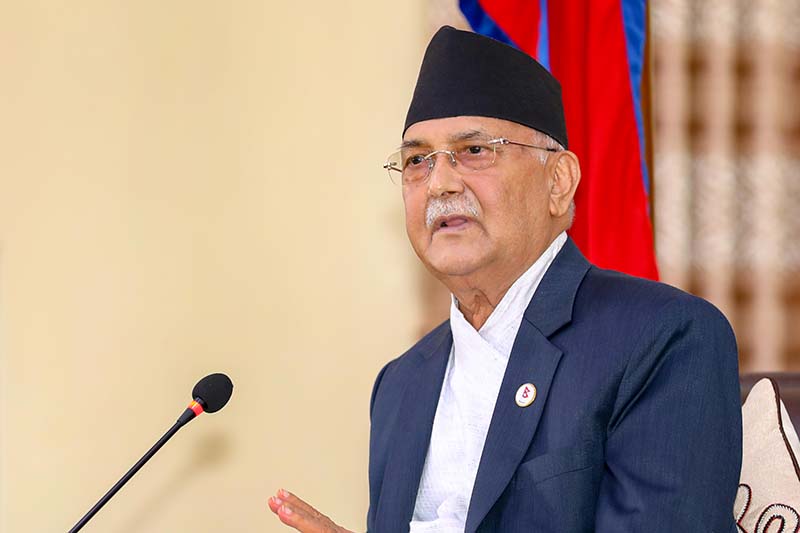House dissolved, mid-term polls announced
KATHMANDU, DECEMBER 20
In a dramatic turn of events, Prime Minister KP Sharma Oli today decided to dissolve the House of Representatives and call mid-term polls to be held in two phases.
Oli, who has been mired in an intra-party feud with the rival faction of the ruling Nepal Communist Party (NCP), recommended dissolution of the HoR and President Bidhya Devi Bhandari approved it within hours. She also announced that general elections will be held on April 30 and May 10.
A press release issued by the President’s Office stated that the decision to dissolve the House was taken by the Council of Ministers in accordance with Article 76 (1) (7) and Article 85 of the constitution.
The PM’s move comes in the backdrop of the rival faction of the NCP pressuring him to step down either as PM or party cochair.
The PM had fallen into minority in all the key bodies of the party — the Secretariat, the Standing Committee and the Central Committee — and his opponents were threatening to take action against him on the basis of majority.
A few days ago, 83 NCP lawmakers had signed a petition seeking special session of Parliament, indicating that the PM might not hold majority in the party’s parliamentary party, which has 173 members.
Constitutional expert Bipin Adhikari said the PM’s move was unconstitutional and the president should not have endorsed it. Unlike the 1990 constitution, the present constitution does not have a provision that allows a majority government to dissolve the House, he added.
“Under the 1990 constitution, former prime ministers Girija Prasad Koirala and Manmohan Adhikari had used their prerogatives to dissolve the House, but under the new constitution the PM cannot dissolve the House,” he added.
Another constitutional expert Chandra Kanta Gyawali claimed that the PM’s action amounted to a constitutional coup.
Former President of Nepal Bar Association Shambhu Thapa said the government could recommend dissolution of HoR only if it didn’t have the numbers. Actions of the PM and the president have no constitutional validity, as Oli was heading a majority government, he added.
Nepali Congress lawmaker Radhe Shyam Adhikari, who is also a senior advocate, said if all the parties agreed to go to the polls, HoR polls could take place, but if they decided to challenge the move in the court and protests broke out on the streets, the constitutional bench would have to test the constitutionality of the PM’s recommendation.
Constitutional provision to dissolve House
The House of Representatives can be dissolved under Article 76 (1) (7) of the constitution.
It clearly states that the House can only be dissolved when no party has a clear majority and the leader chosen as prime minister by coalition partners fails to prove majority within 30 days of his/her appointment.
In such a scenario, the prime minister can recommend dissolution of the House.
However, Prime Minister KP Sharma Oli’s decision to dissolve the House doesn’t meet any of these criteria since his party, the Nepal Communist Party (NCP), holds a clear majority in the 275-member House of Representatives with 173 members.
What next
- The president can still ask the prime minister to withdraw his recommendation citing lack of its constitutional validity
- NCP leaders can go to the president claiming that they can form the government
- NCP can ask the president to call a Special Session of Parliament saying that they want to remove KP Sharma Oli as prime minister and form a new government
- Decision to dissolve the House of Representatives can be challenged in the apex court
- The president can wait for the Supreme Court to decide on the matter in case someone moves the Supreme Court seeking nullification of the prime minister’s recommendation to dissolve the House
READ ALSO:






